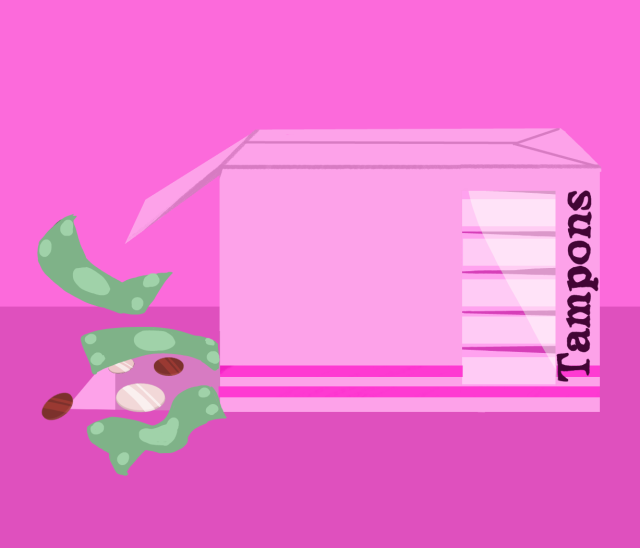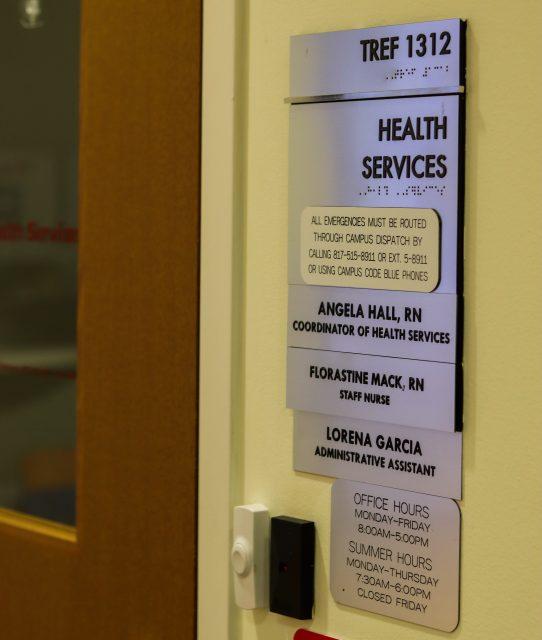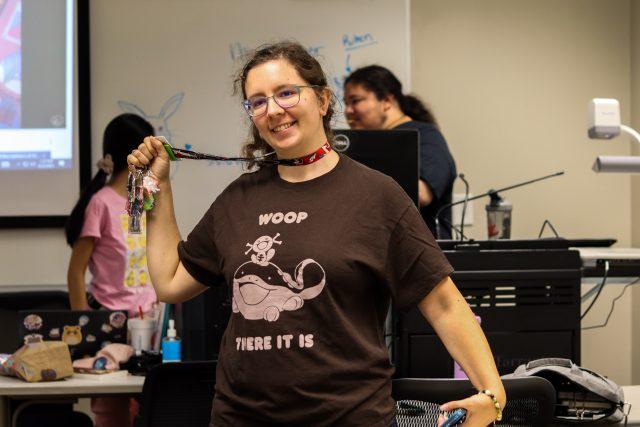Effective Sept. 1, the sales tax for “certain family care items” has been eliminated. These items include diapers, baby wipes and menstrual products.
For advocates of accessible menstrual care, the bill has been a long time coming. Proponents of the removal of the tax on menstrual products, also referred to as the “tampon tax,” believe it is the first step in decreasing the stigma of periods and making menstrual care more accessible. Although the taboo surrounding menstruation has lessened in recent years, people who menstruate are still faced with period poverty.
According to the Journal of Global Health Reports, period poverty is “defined as a lack of access to menstrual products, hygiene facilities, waste management, and education.”
Homeless people who menstruate are hit hardest by period poverty. Not only is shelter and food hard to come by, but basic hygiene can be even harder to achieve. A box of 34 Tampax Pearl tampons are $7.97. Fashioning a free makeshift pad compared to eight dollars seems like the fiscally smarter choice. But long term, it is not a hygienic solution and can lead to urinary tract infections or yeast infections.
For higher income individuals that live in liberal areas, period poverty may not affect them as harshly compared to the latter. While removing taxes on menstrual products is a step in the right direction, proper menstrual education is often overlooked facet of period poverty. Many conservative states do not offer comprehensive education about the menstrual cycle; primarily focusing on the functions of the internal reproductive system.
The tampon tax demonstrates implicit gender bias on who we consider more worthy of getting adequate medical treatment. Wisconsin is among the 24 states where the tampon tax is intact. Viagra, however, is not taxed. The selective banning of products implies that menstrual care is a luxury and that men and people with external genitalia take precedence over women and people who menstruate.
Global efforts have been made to alleviate the gap period poverty has created. Spain has led the effort in Europe with paid time off during an individual’s menstrual cycle, and Scotland is the first country to make period products free for all.
For people with medical conditions like endometriosis, periods can be an excruciating time of the month. Time off, birth control and affordable menstrual products, if not free, could ease the inevitable pain they suffer. It’s the very least we could do.
Half the population deals with menstrual cycles and yet we treat them like periods don’t exist. Time after time, people who menstruate are expected to perform at peak performance while undergoing cramps, bleeding and fluctuating hormones.
For many people in the workforce, taking time off isn’t a feasible option. So, they have to grin and bear through the workday with no accommodations besides an Advil in a first aid box.
To ignore the pain of your peers simply because it’s how society has operated forever is not an excuse to continue the neglect. People who menstruate deserve accessible care to basic hygiene.





























